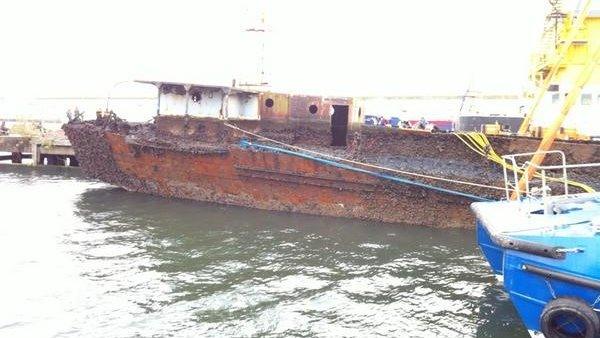Last D-Day craft makes final journey after Portsmouth revamp
- Published
In later years, the craft was even used as a nightclub
The last surviving D-Day tank landing craft has been moved on to dry land following its final journey on water.
LCT 7074 was renovated with a National Heritage Lottery fund £4.7m grant ahead of its permanent display at the D-Day Story museum in Southsea.
It had been due to be delivered on the 76th anniversary of D-Day in June but this was delayed due to coronavirus.
The craft has travelled from Portsmouth Naval Base to Southsea ahead of being installed at the museum.
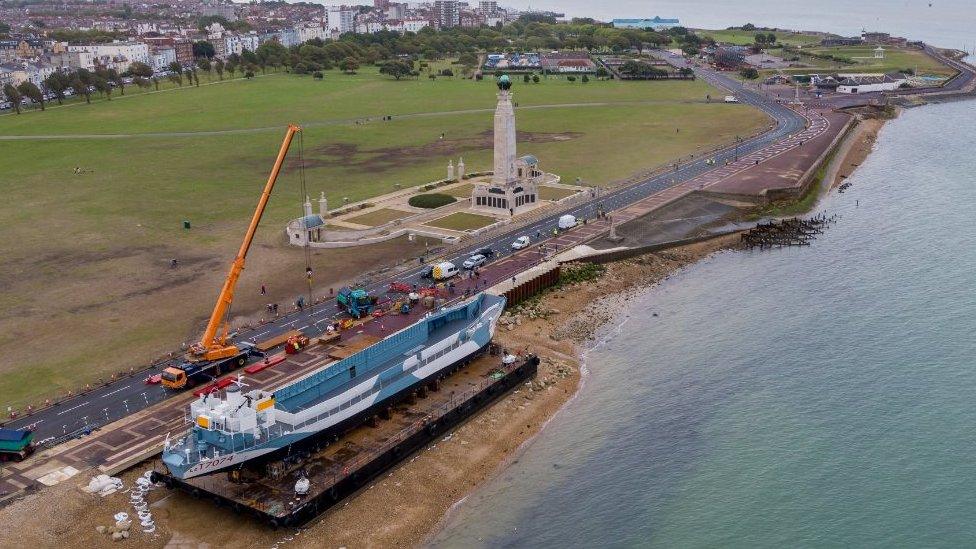
The craft is being installed at the D-Day Story museum in Southsea
Timelapse footage of the last landing craft used in the D-Day landings being raised from Liverpool Docks
An attempt in the early hours of Sunday was called off due to high winds.
But Nick Hewitt, head of collections and research for the National Museum of the Royal Navy, tweeted on Monday morning , externalto say the latest bid had been as "smooth as anything".
Delays to restoration work on the 59m-long, 300-tonne ship added £75,000 to its cost, the National Museum of the Royal Navy previously said.
The work has included attaching a restored funnel, replacement guns and rocket launchers.
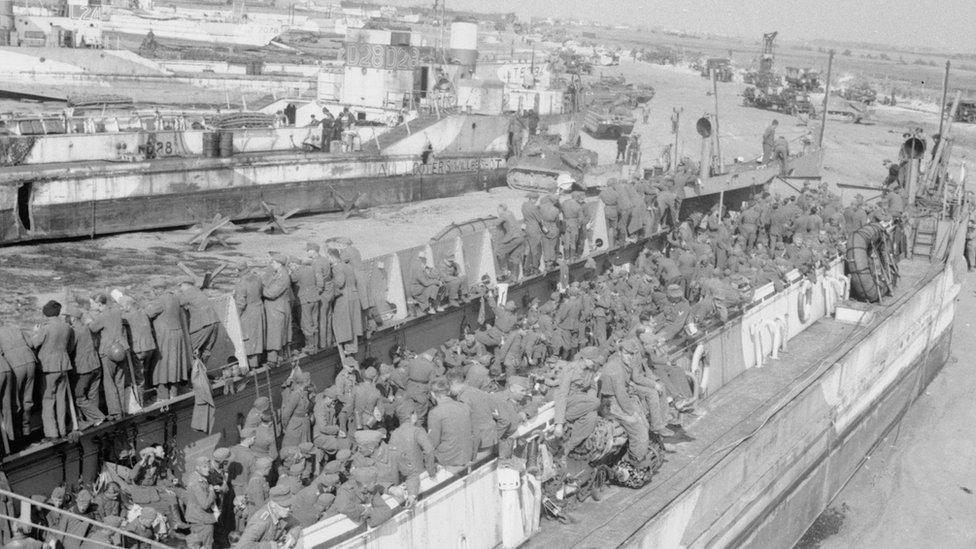
LCT 7074 landed on Gold Beach on D-Day
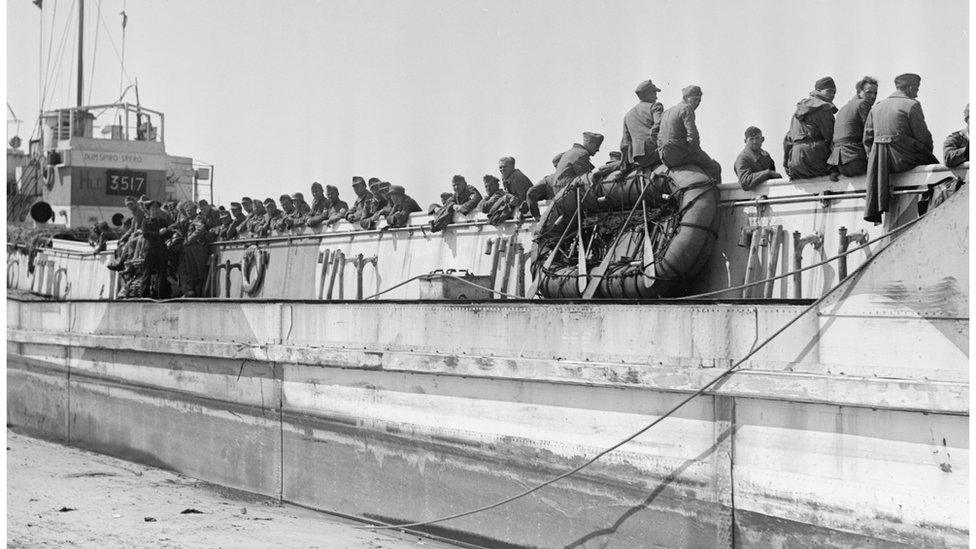
It put 10 tanks and a contingent of soldiers ashore at about 02:00 on 7 June 1944
LCT 7074 was one of more than 800 specially designed landing craft vessels involved in the D-Day landings.
It arrived at Gold Beach, surviving German shell fire which sank the craft next to it.
It put 10 tanks and a contingent of soldiers ashore at about 02:00 on 7 June 1944 before returning to England with prisoners of war.
The 183ft (57m) vessel later became a floating nightclub before sinking in a semi-derelict condition at Birkenhead Docks.
Since 2014, the National Museum of the Royal Navy has led a project to rescue the craft from the docks.
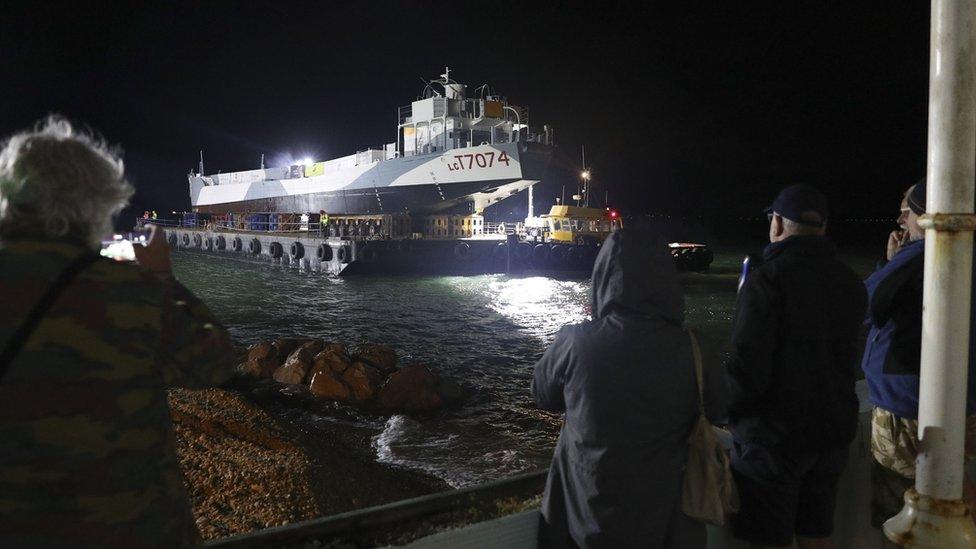
LCT 7074 was one of more than 800 specially designed landing craft vessels involved in the D-Day landings
- Published24 August 2020
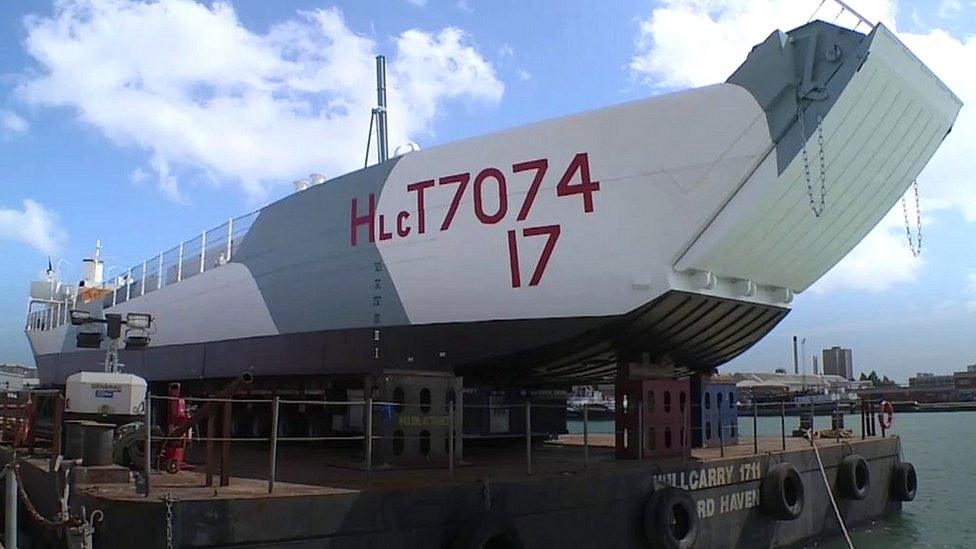
- Published12 June 2020
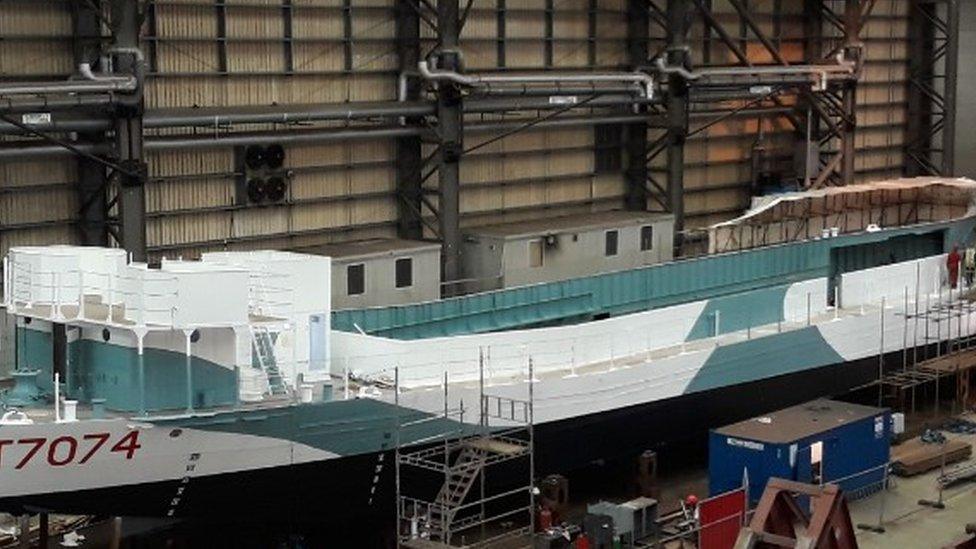
- Published1 November 2018

- Published22 September 2017
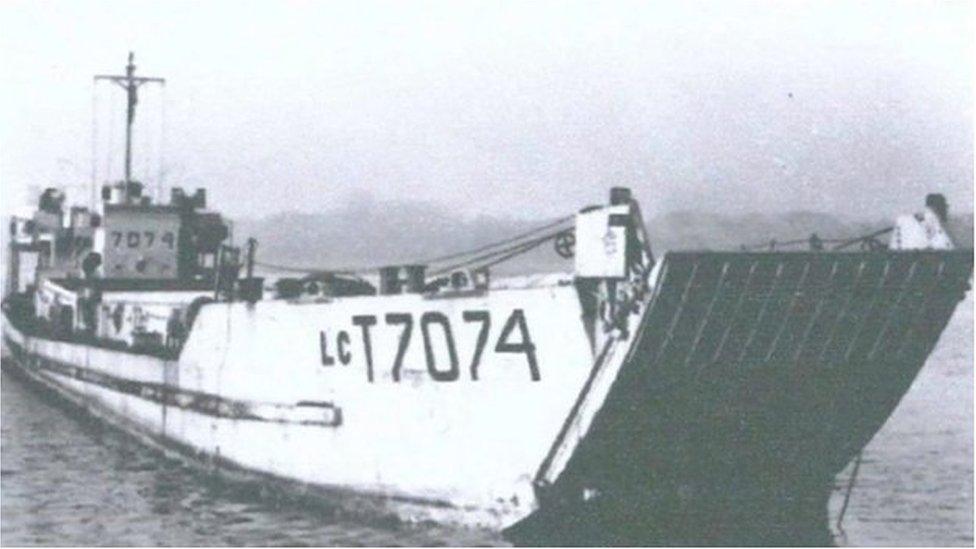
- Published28 September 2015
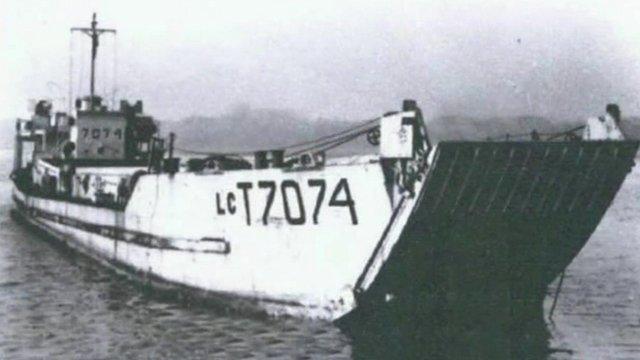
- Published28 September 2015
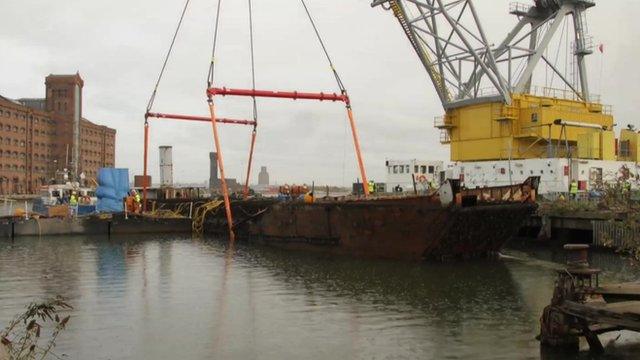
- Published17 October 2014
